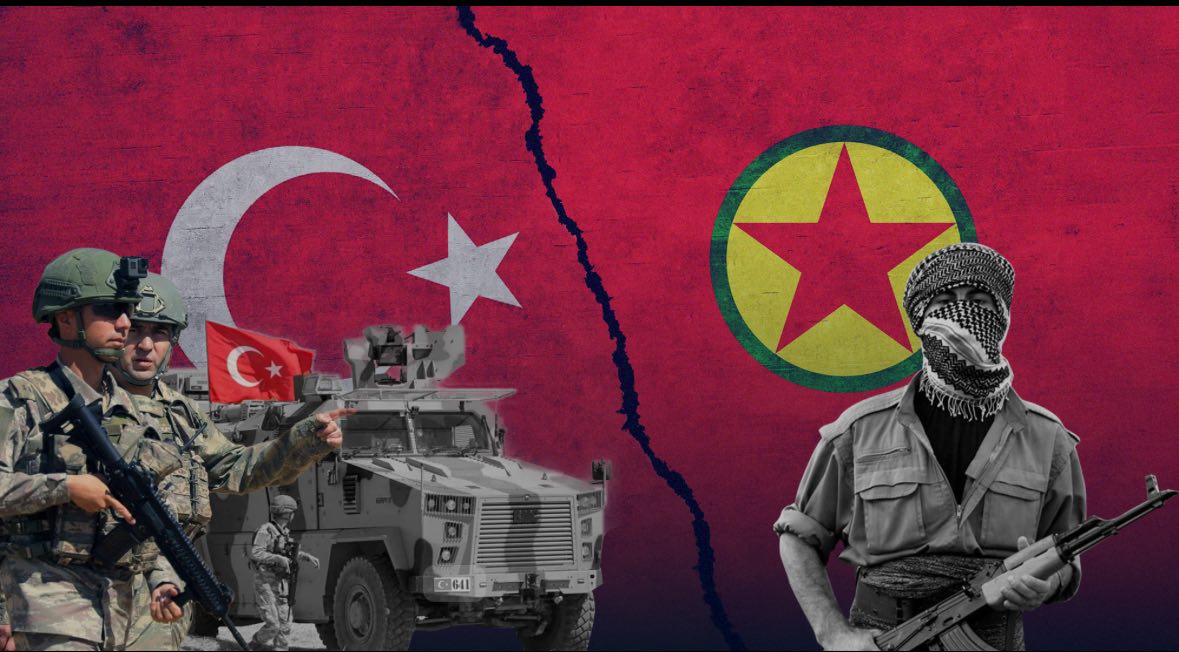End of the Era of Arms for Turkey’s Kurds
End of the Era of Arms for Turkey’s Kurds
In a significant political development that could fundamentally change the region’s future, the Kurdistan Workers’ Party (PKK) has officially announced the dissolution of its organizational structure and the end of its four-decade armed struggle against the Turkish government.
This decision was made at the group’s twelfth congress in northern Iraq, based on a call from Abdullah Öcalan, the imprisoned leader of this organization, who has been held on an island near Istanbul since 1999 and holds significant intellectual influence among his supporters.
The group’s official statement says the twelfth congress has decided to dissolve the PKK’s organizational structure and end the method of armed struggle.
Accordingly, activities carried out under the name PKK have been officially stopped. This statement, aside from its symbolic weight, is practically a major step towards reducing one of the longest armed conflicts in the Middle East, a war that began in 1984 and has, according to estimates, claimed over 40,000 lives to date.
The PKK was initially formed in 1978 with the aim of establishing an independent Kurdish state or at least gaining greater autonomy for Turkey’s Kurds.
In the first decade, the group’s efforts were mainly focused on promoting Kurdish cultural rights and political identity-seeking, but over time, especially from the mid-1980s, the PKK turned to armed struggle.
Turkey, the United States, and the European Union have listed this group as a terrorist organization, while a segment of the Kurdish community and some international bodies see it as a movement for improving minority conditions.
Öcalan, who now oversees the organization’s dissolution process from prison, called for a halt to armed operations and a move towards political and democratic solutions last February.
In his view, the PKK has fulfilled its historical mission, and the Kurdish issue must now be resolved through legislation, elections, and parliament.
Vladimir van Wilckenburgh, an analyst on Kurdish issues, tells Radio Free Europe/Radio Liberty that many Kurds in Turkey are tired of the ongoing conflicts and are eager for peace, but still have doubts about the Turkish government’s intentions.
He says if Recep Tayyip Erdoğan, the President of Turkey, wants genuine reconciliation, he should take actions like releasing Selahattin Demirtaş, the former leader of the Peoples’ Democratic Party (HDP), and begin recognizing Kurdish rights.
Although the PKK has not mentioned the direct entry of its commanders into Turkey’s political scene, analysts believe that Kurdish politics will henceforth be pursued through official parties like the HDP.
However, questions remain about the reaction of PKK’s regional branches in countries such as Iran, Syria, and Iraq. Experiences like the split of Osman Öcalan and the formation of an independent group in 2004 show that the organization’s unity after dissolution is not necessarily guaranteed.
This development occurs as Recep Tayyip Erdoğan seeks to strengthen his international image.
He has recently hosted peace talks between Russia and Ukraine and is negotiating with the governments of Baghdad and Erbil to establish a mechanism for handing over PKK weapons. Erdoğan has announced that plans are underway regarding how neighboring governments can participate in the process of disarming terrorists outside the borders.
Meanwhile, according to Reuters, some domestic observers are concerned that Erdoğan might exploit this political victory to bolster his position within the country. His opponents believe that the President wants to gain Kurdish voter support to pass a new constitution that would allow him to continue his rule beyond 2028.
At the same time, Ekrem İmamoğlu, Erdoğan’s prominent rival and the mayor of Istanbul, has faced restrictions since his arrest last March, which analysts see as a sign of political repression.
Despite this, Erdoğan has emerged on the global stage as a peace mediator and a key player in regional diplomacy and has recently been praised by Donald Trump.
In modern history, similar examples of the end of armed struggles by rebel groups have been observed, including the dissolution of ETA in Spain, the peace agreement with FARC in Colombia, or the end of the civil war with the Tamil Tigers in Sri Lanka.
In most of these cases, the transition from arms to politics required patience, dialogue, trust-building, and genuine participation. Now that the PKK has embarked on this path, the responsibility for achieving lasting peace rests not only on the Kurds but also on the Turkish government.
The future of the peace process depends more than anything on whether both sides of the conflict are ready to move beyond the past.
If so, perhaps after forty years of war, a fragile but real peace can be seen on the horizon.

